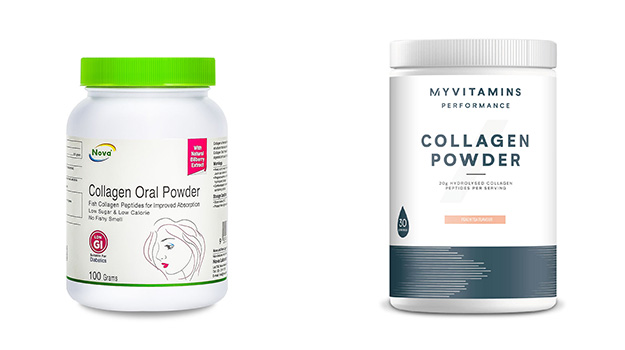- Smart Watch Payments and Digital Wallets in the Philippines - June 8, 2023
- Front-Load vs. Top-Load Washing Machines - May 25, 2023
- Pros And Cons Of Wireless Charging Power Banks - May 10, 2023
Last Updated on
Collagen, the building block of our skin, bones and joints, has become a buzzword in the world of health and beauty. With an ever-growing array of lotions, potions and supplements claiming to be the secret to youthful skin and improved joint health, it’s no surprise that taking collagen supplements is surrounded by myths and misconceptions.
In this blog post, we’ll debunk some common collagen fallacies while shedding light on the truth behind this essential protein.
Common Myths And Misconceptions About Collagen
Collagen peptides are often associated only with anti-ageing, but this is just one of many myths surrounding the protein.
Myth: Collagen Is Only For Anti-ageing
One of the most prevalent myths surrounding collagen supplements is that their sole purpose revolves around anti-ageing and maintaining a youthful appearance.
For instance, did you know that collagen is vital for joint health? Collagen peptides are one of the amino acids that make up a considerable portion of our tendons, ligaments, and cartilage – all crucial components for healthy joints.
Research studies have found links between having sufficient levels of collagen and reduced symptoms in individuals suffering from osteoarthritis or general joint pain. Additionally, collagen peptides have been shown to be beneficial for gut health by providing support to the lining of our digestive tract.
Myth: Collagen Comes Only From Animal Sources
A common misconception about collagen is that it can only be sourced from animals. While animal-derived collagen supplements are widely available, there are also plant-based sources such as chia seeds, leafy greens, and berries that provide the body with the necessary nutrients for the body’s natural production.
Additionally, research studies indicate that diet and lifestyle changes can increase collagen production in the body without relying on supplements. Eating foods rich in vitamin C like citrus fruits and bell peppers helps the body create new collagen peptides while avoiding excessive sugar intake and prevents breaking down existing collagen molecules.
Myth: Collagen Supplements Are The Only Way To Boost Collagen Production
One of the most common myths about collagen is that collagen supplements are the only way to boost collagen production. This misconception has led many people to believe that they need to take expensive and often ineffective supplements in order to enjoy the benefits of increased collagen production.
Some examples of natural methods for boosting collagen include consuming foods rich in vitamins C and E, which can help promote healthy skin and connective tissues, such as citrus fruits and leafy greens.
Regular exercise can also stimulate increased hydrolyzed collagen peptides growth by promoting blood flow and circulation throughout the body. Finally, maintaining a healthy lifestyle with adequate sleep and stress management techniques can reduce inflammation in the body which damages existing stores of collagen while inhibiting new growth.
The Truth About Collagen
Collagen peptides are not only beneficial for skin health and anti-ageing but also play a crucial role in maintaining joint flexibility, supporting the digestive tract and improving bone health.
Collagen Has Other Health Benefits Beyond Skin And Ageing
Collagen is not just for maintaining skin elasticity and reducing the signs of ageing. Research studies have shown that collagen plays a significant role in supporting joint, bone, and digestive tract health.
Collagen makes up a large portion of our connective tissues, which includes tendons, cartilage, ligaments and bones.
Collagen has also been found to help improve gut health by promoting healthy digestion and absorption of nutrients. As we age or experience injuries, our body’s ability to produce natural collagen decreases; however, supplementation or dietary changes such as adding more protein sources like chicken, Turkey, fish etc can be done to boost the availability of this key nutrient in our body.
Collagen Can Also Be Sourced From Plant-based Sources
Contrary to popular belief, collagen is not only found in animal-based products. In fact, there are several plant-based sources of collagen such as fruits and vegetables that can be included in your daily diet.
For example, citrus fruits like oranges and lemons contain high levels of vitamin C which plays a crucial role in the production of collagen within the body.
By incorporating these plant-based sources into your diet along with other lifestyle choices such as reducing stress levels and getting adequate sleep, you can naturally boost collagen production within your body without relying on supplements.
Not only will this benefit skin health but it can also promote joint health and digestive tract function among others.
Collagen Production Can Be Boosted Through Diet And Lifestyle Changes
It’s a common belief that the only way to increase collagen is through supplements or topical treatments. However, this is far from the truth.
Firstly, incorporating foods rich in vitamin C into your diet can help stimulate collagen synthesis. This includes citrus fruits, tomatoes, and leafy greens like spinach and kale.
Another key factor is staying hydrated by drinking plenty of water throughout the day and taking a collagen supplement.
Lastly, avoiding smoking and excessive alcohol consumption are critical factors in maintaining healthy collagen levels due to their negative effect on tissue regeneration.
Overall making small yet significant changes to our lifestyles can go a long way in boosting our body’s natural Collagen production while also encouraging overall health benefits too.
Conclusion
In conclusion, collagen supplements are important proteins for our body’s health and well-being. However, there are many myths and misconceptions surrounding collagen which can be misleading to consumers.
Collagen not only benefits skin health and anti-ageing but also joint health and gut health. It can even be sourced from plant-based sources making it accessible to vegetarians and vegans.
While supplements may help boost collagen production, it is important to note that diet and lifestyle changes play a significant role as well.

